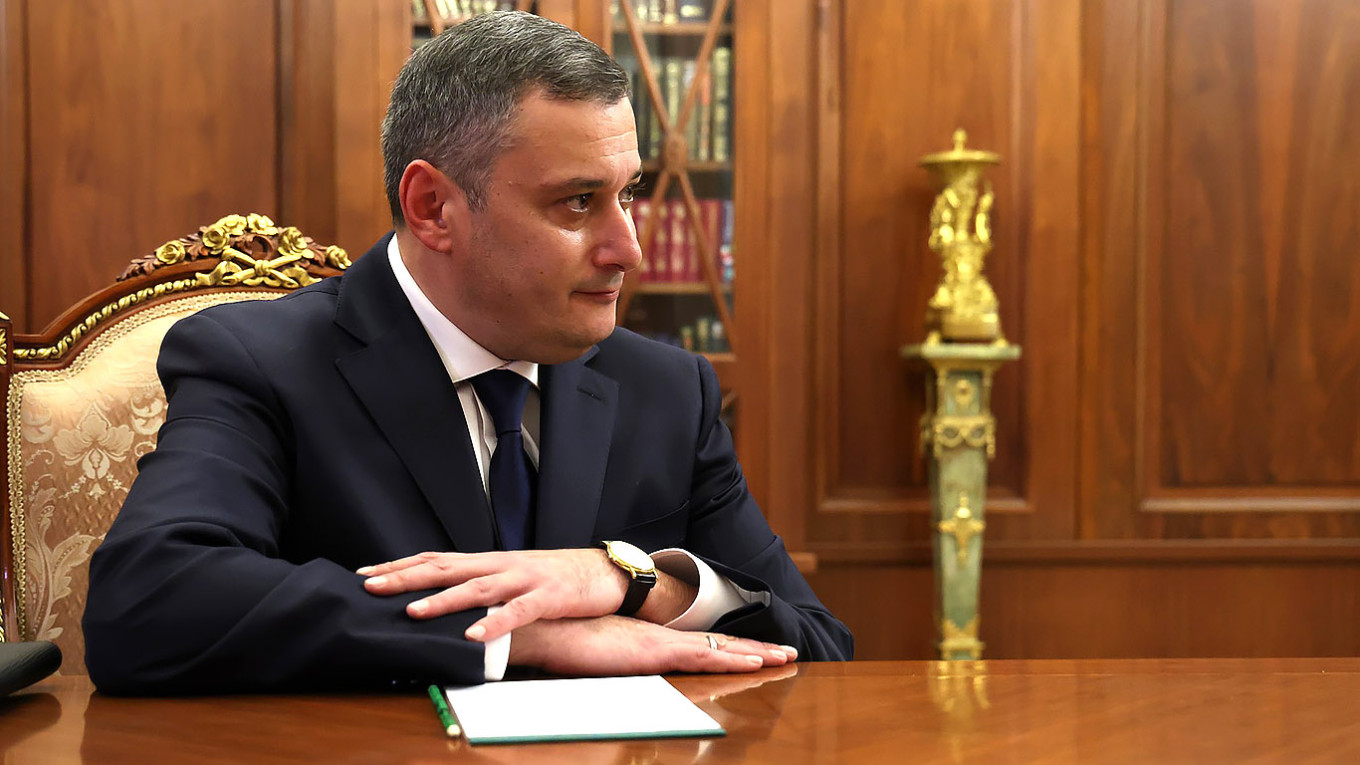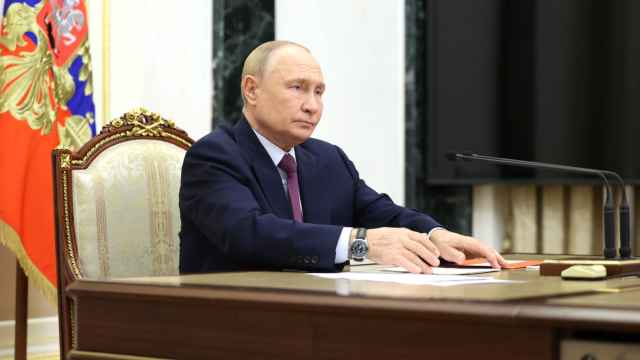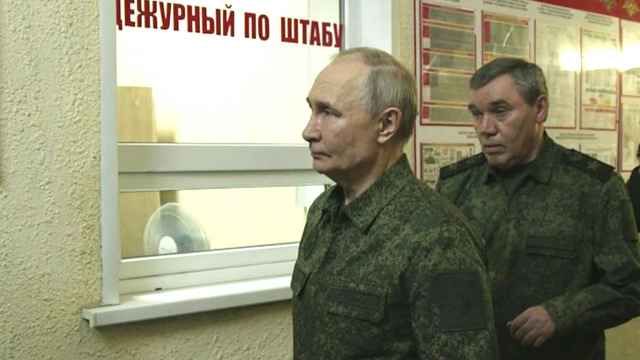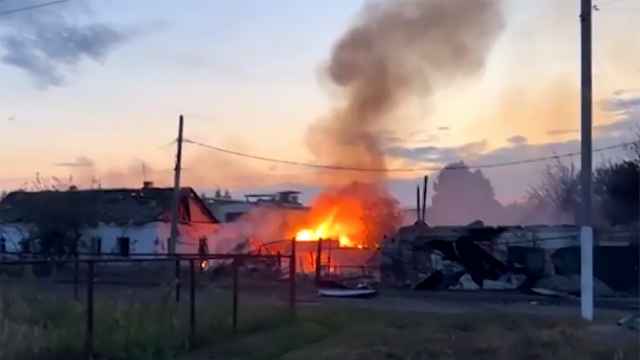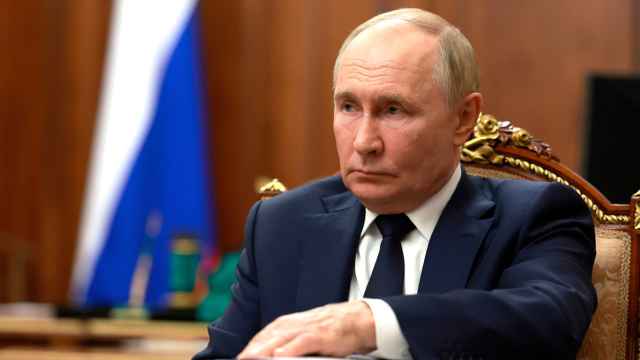President Vladimir Putin on Thursday appointed federal lawmaker Alexander Khinshtein as the acting governor of southwestern Russia’s Kursk region, which has faced protests since being partly occupied by Ukrainian forces four months ago.
“Crisis management is in demand there now,” Putin told Khinshtein in their Kremlin meeting, highlighting the veteran State Duma member’s two-year stint as an advisor to Russia’s National Guard director.
“As the territory is liberated from the enemy, of course, much will have to be done there to restore the housing and utilities sector and the economy,” Putin said.
In a decree that entered into force Thursday, Putin said he “accepted” the resignation of Khinshtein’s predecessor, former deputy governor Alexei Smirnov.
Putin appointed Smirnov in May as part of a wider reshuffle at the start of his fifth presidential term. Smirnov was then formally elected governor in September, with parts of the Kursk region already under Ukrainian occupation.
In November, the displaced residents of occupied towns and villages staged protests calling on Putin to provide promised compensation for destroyed property. Smirnov announced the sacking of two local officials, who later turned out to remain in office
Smirnov’s predecessor, Transportation Minister Roman Starovoit, linked the appointment of Khinshtein to Smirnov’s “communication problems.”
“There are many material and legal support measures at the regional and federal levels, but there were problems with communicating to people how they’re implemented,” Starovoit told reporters.
“The situation is not easy, and apparently that’s why the decision was reached [by Putin],” he added.
More than 150,000 people living in Kursk region towns and villages near the border with Ukraine have been forced to evacuate their homes after Kyiv launched a surprise incursion on Aug. 6.
Both the scale of the evacuations and the cross-border fighting has not been seen in Russia since World War II, when Nazi Germany invaded the Soviet Union. Russian authorities have repeatedly invoked historical parallels with that conflict and Moscow’s current war against Ukraine.
A Message from The Moscow Times:
Dear readers,
We are facing unprecedented challenges. Russia's Prosecutor General's Office has designated The Moscow Times as an "undesirable" organization, criminalizing our work and putting our staff at risk of prosecution. This follows our earlier unjust labeling as a "foreign agent."
These actions are direct attempts to silence independent journalism in Russia. The authorities claim our work "discredits the decisions of the Russian leadership." We see things differently: we strive to provide accurate, unbiased reporting on Russia.
We, the journalists of The Moscow Times, refuse to be silenced. But to continue our work, we need your help.
Your support, no matter how small, makes a world of difference. If you can, please support us monthly starting from just $2. It's quick to set up, and every contribution makes a significant impact.
By supporting The Moscow Times, you're defending open, independent journalism in the face of repression. Thank you for standing with us.
Remind me later.


